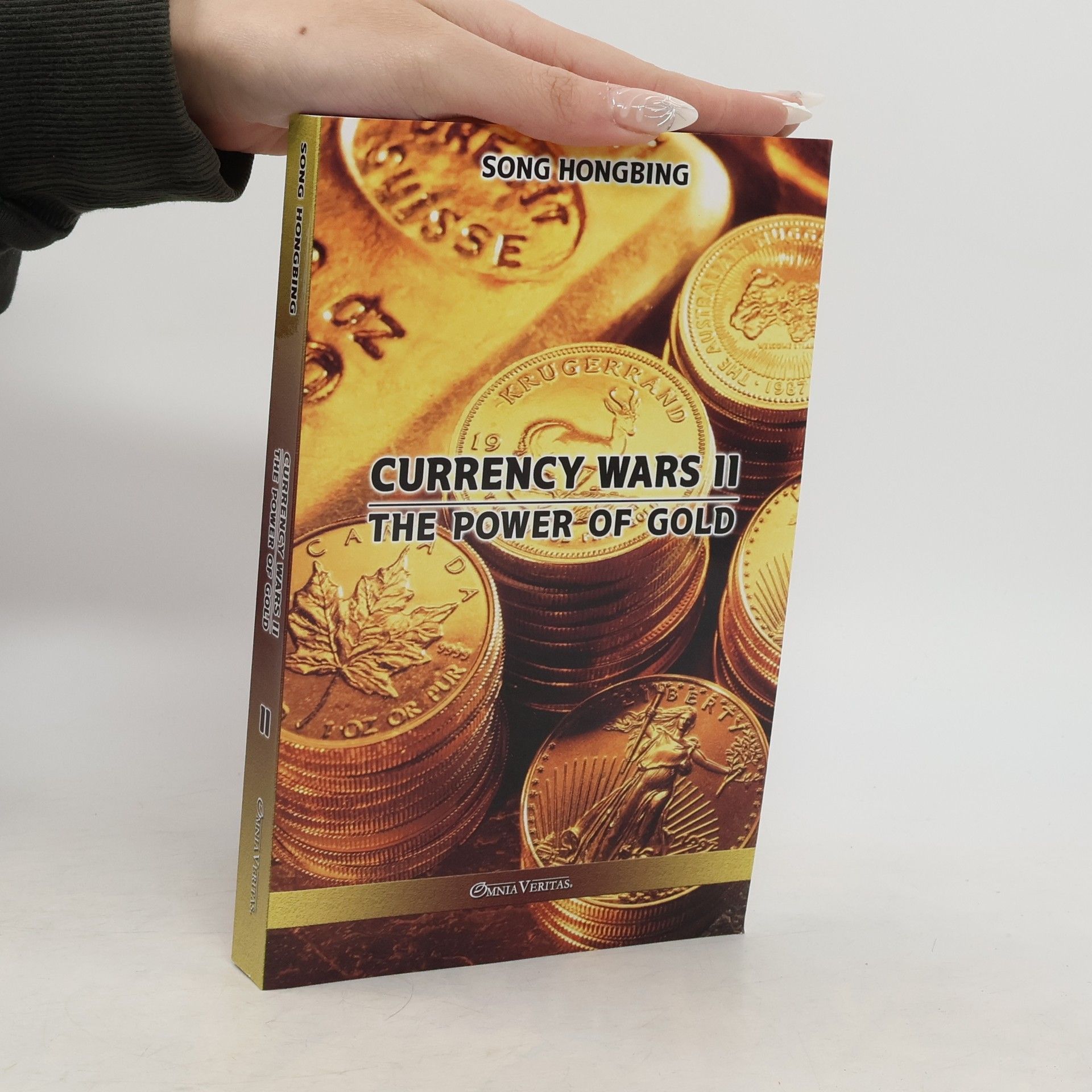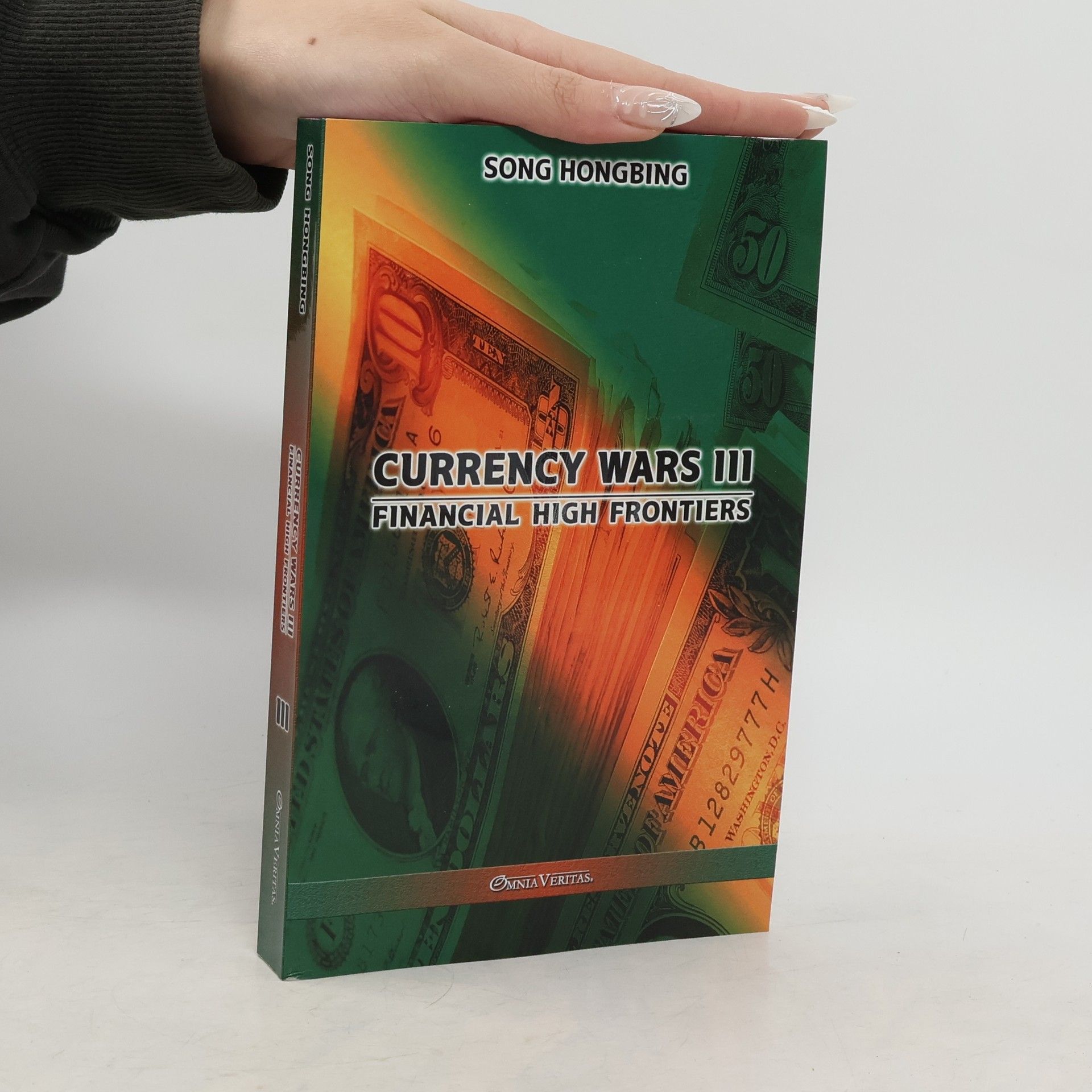Le boom économique chinois qui ébranle la planète ne va pas sans susciter une profonde angoisse au sein même des milieux d'affaires de Pékin. Pour preuve, le succès fracassant d'un bien étrange livre... Quand vous apprenez le monde n'est pas tel que vous croyez ni tel que vous le voyez; la banque centrale américaine, c'est-à-dire la Federal Reserve Bank (Fed), a échappé au contrôle de son gouvernement pour devenir une marionnette aux mains de la finance internationale; des catastrophes, des crises, des meurtres, jusqu'à l'accession au pouvoir d'Adolf Hitler et la mort de six présidents américains résultent bel et bien d'un complot international; une guerre mondiale est en cours, qui a des monnaies pour armes et pour munitions, une guerre aussi meurtrière qu'elle est, à ce jour, invisible... --Marianne 17/02/2008L'un des livres les plus populaires de ces dernières années en Chine a été La Guerre des Monnaies de Hongbing Song, un réquisitoire, entre autres théories conspirationnistes, selon lequel la Réserve Fédérale essaye de ruiner l'économie chinoise. --Gordon G. Chang (Forbes Magazine),Ce livre extrêmement influent en Chine a été traduit en Coréen et a rencontré un large public. Il a été abondamment cité dans toute l'Asie, et dans le monde. --Emanuel Pastreich
Hongbing Song Livres






Currency Wars II: The Power of Gold
- 420pages
- 15 heures de lecture
The book explores the hierarchical structure of human societies, emphasizing the dynamics of power and influence. It contrasts the Eastern power pyramid, based on regimes, with the Western model, which is heavily reliant on hidden debts that bind societal layers. In the West, creditors hold significant authority, with central banks, influenced by international bankers, as the primary creditors. This structure positions the largest creditors as the ultimate decision-makers, revealing how financial power shapes government actions and societal dynamics.
Currency Wars V: The Coming Rain
- 420pages
- 15 heures de lecture
The book explores how an overload of information and conflicting opinions can hinder critical thinking, especially in economic contexts. It highlights the struggle to discern essential data from noise, leading to confusion between significant and trivial details. By examining how superficial issues can overshadow deeper problems, the author emphasizes the challenges of maintaining clear reasoning and sound judgment in a complex information landscape, ultimately revealing how illusions can obscure the truth.
Currency Wars I: Currency Warfare
- 366pages
- 13 heures de lecture
Exploring the intrinsic relationship between money and wealth, this work delves into how currency serves as a receipt for wealth, shaped by human labor. It highlights the evolution of currency over 5,000 years, identifying over 2,000 commodities that have been used as money, ultimately leading to the dominance of gold and silver. These metals are presented as universal symbols of wealth across civilizations and religions, embodying both the claim to wealth and wealth itself, reflecting the market's preference for tangible assets.
Currency Wars IV: Age of the Warring States
- 402pages
- 15 heures de lecture
Exploring the historical rivalry between the US dollar and the pound sterling, this book details the strategic maneuvers that led to the dollar's dominance over the pound. It highlights how US monetary policies systematically diminished the pound's status as a global reserve currency, while also examining the pound's attempts to reclaim its influence through the "imperial preference system." The narrative illustrates how this intense competition contributed to a financial power vacuum in the 1930s, intensifying the global Great Depression.
Currency Wars III: Financial high frontiers
- 414pages
- 15 heures de lecture
Exploring the often-ignored role of currency, this work reveals its significance in understanding historical events and navigating contemporary challenges. By examining the financial histories of Europe, America, China, and Japan, the author argues that finance represents a "fourth dimensional frontier" essential for sovereign nations. This new dimension, alongside traditional territorial boundaries, is crucial as nations face emerging international currency conflicts, highlighting finance's growing importance in global dynamics.
This book explores the evolution of world reserve currency hegemony, beginning with the U.S. dollar's strategic overthrow of the pound sterling. It details how U.S. monetary policy gradually diminished the pound's power, undermining its status as an international reserve currency and trade settlement medium. The pound's attempts to counteract this dominance through the "imperial preference system" momentarily returned the dollar to a more isolated position. The intense rivalry between the two currencies created a financial power vacuum in the 1930s, worsening the Great Depression globally. The Second World War presented a pivotal opportunity for the dollar to supplant the pound, with the Atlantic Charter and the Lend-Lease Act serving as instruments in Roosevelt's strategy to dismantle British monetary influence. Ultimately, the United States established a "Bretton Woods dynasty," creating a dollar-centric system that effectively held gold as leverage over its allies. The dynamics of the "China-America" economic relationship are shifting, as America's previous tolerance for China's growth, based on a model of production and consumption, is fracturing. China's impending economic transformation will necessitate a focus on domestic markets, reducing its reliance on exports to the U.S. and altering the foundational U.S. stance of accommodating China's economic ascent.
Human society typically resembles a pyramid, where a small, critical minority ascends the social structure through intelligence, diligence, and sometimes through violence or fraud. Once they gain financial power and influence, they consolidate their interests by altering the rules and forming a ruling elite with interconnected agendas. In Eastern societies, this power pyramid is based on regimes, while in the West, it relies on hidden debts that bind various societal strata. Here, creditors wield dominant power over debtors, with the state apparatus primarily serving to uphold this financial chain. The largest creditors, particularly central banks controlled by international bankers since the 19th century, dictate the rules of the game, positioning themselves as the ultimate lawmakers. Consequently, the West functions as a financial powerhouse that significantly influences government decisions. This work will explore the formation, development, exclusion, conflict, alliance, and checks and balances among major financial power groups in Europe and the United States over 300 years. It will systematically analyze the decision-making mechanisms of today's dominant forces and unveil the mystery of the "international banking family club" that governs the world.
People's ability to think critically is often hindered by an overload of information and conflicting opinions. Essential data is obscured by irrelevant details, deeper issues are masked by superficial ones, and core reasoning becomes entangled in trivial logic. This confusion leads to misguided analysis and distorted judgment, ultimately creating an illusion that overshadows the truth. This phenomenon is especially evident in the economic realm. Five years post-2008 financial crisis, opinions on the global economy remain polarized. Key questions persist: Has U.S. quantitative easing been effective? Is the global currency overshoot beneficial or detrimental? Are financial markets becoming safer or riskier? Is the economic recovery robust or fleeting? Are we moving away from recession or heading toward another crisis? Humanity's activities have always centered on two fundamental tasks: creating and distributing wealth, driven by an inherent greed. This "good in greed" fuels technological advancements that enhance productivity and prosperity. However, unchecked greed can lead to deception, speculation, and extravagance, ultimately stifling progress and skewing wealth distribution, which diminishes societal economic vitality.
Currency, often overlooked by historians, is crucial for unlocking historical puzzles, navigating today's complexities, and envisioning the future. Through the study of financial history across Europe, America, China, and Japan, it becomes evident that finance represents a "fourth dimensional frontier" that sovereign nations must protect. This frontier extends beyond traditional land, sea, and air boundaries to encompass finance as a vital dimension. As international currency wars intensify, the significance of this financial frontier will grow. The evolution of finance in Europe and the U.S. reveals that the architecture of this frontier comprises currency standards, central banks, financial networks, trading markets, institutions, and clearing centers, all aimed at ensuring efficient and secure resource mobilization for currency pairs. This system spans from the central bank's money creation to the customer terminals that accept it; from intricate money flow networks to funds remittance clearing centers; from financial trading markets to credit rating systems; and from the flexible regulation of financial laws to the establishment of robust financial infrastructure. Ultimately, this financial high frontier safeguards the flow of money from the central bank, through financial networks, to the broader economy, ensuring a seamless circulation system vital for economic health.



